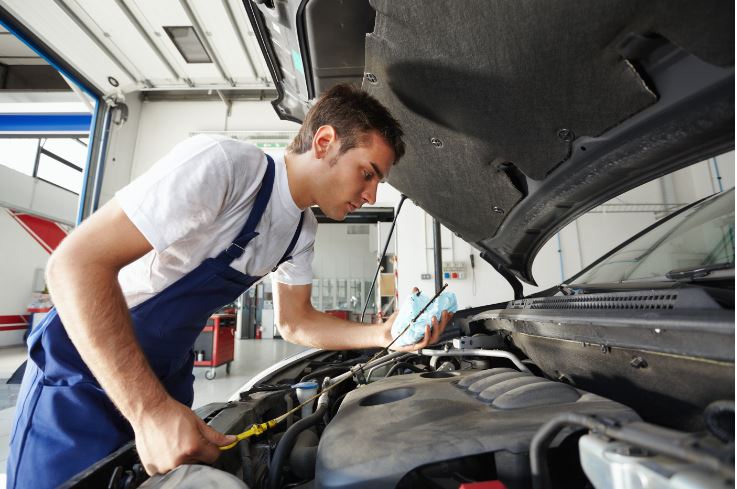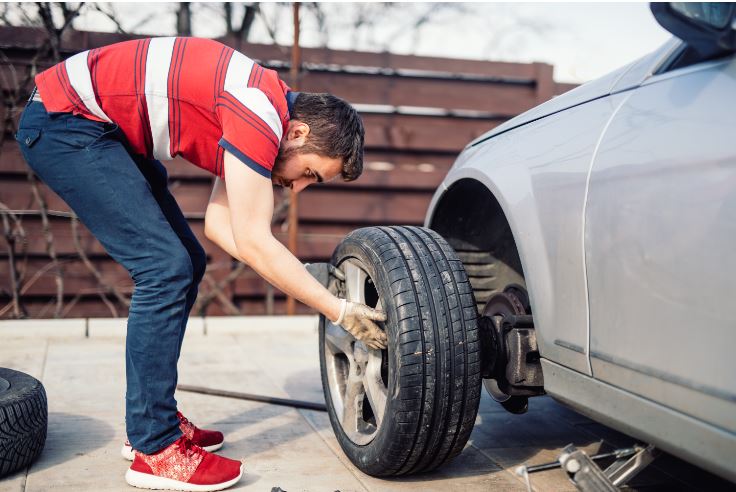Individuals with low income and welfare recipients can qualify for the federal government or non-profit transportation assistance. The plan will help pay for repairs to vehicles, such as new tires, engines, and other work needed.
The service they generated is called Job Access and Reverse Commute, or JARC. This is limited in reach and funding and is operated around the country by a variety of non-profit organizations.
The funding to these agencies is limited, and the funds are meant to assist the low-income people in the society. Before you are funded with this money, you will be required to apply.
Who Does the Government Assistance for Car Repairs Meant For?

JARC will only provide car repair assistance to a select number of towns, cities, and counties. When funding is available, a focus will be on assisting individuals needing transportation for reasons of work, education, or job training.
However, in case the applicant does not qualify for free car repairs using this aid program from the federal government, some non-profits can assist with any critical auto work.
Grants may be issued from local non-profits that partner on JARC with the Federal Transit Administration, or even low-interest loans to pay for maintenance as well as emergency repairs to trucks or cars.
This grant program funded by the federal government aims to tackle the transportation challenges of low income and those who need a car or car to get to work. Parents with children, including single parents, also get car repair assistance.
The money has to be used to pay for transportation problems that will either help people get their job/employment or retain it.
In addition to providing grants or cash to people, JARC may also provide micro-credits that can be used to repair cars as well as the trucks or to help with other general transport assistance and services.
How the Government Assistance for Car Repair Work?

All the help given revolves around ensuring that people have a safe and reliable car to get back and forth to work. For example, many entrance-level jobs may be located in a suburban area outside of a city. Public transport may not be in a position to reach those areas.
Therefore, low-income individuals living in the inner city, industrial, or rural areas can find it difficult to access these jobs from their current homes. This is one example of a problem JARC was created to deal with.
Funds from the government’s Job Access and Reverse Commute program may help with those transportation-related expenses.
A key being the assistance provided, like free money to pay for car repairs and related transportation costs, is focused on becoming self-sufficient for the individual.
Thus any funds paid out must be able to either enable individuals to obtain a job in those situations or to maintain their existing employment.
Besides the distance, many entry-level jobs allow the person to work on weekends or late at night when other traditional and public transit systems are either non-existent or run at reduced hours. In these cases, too, Work Access and Reverse Commute will help.
Other examples are the JARC, which can help is to address the fact that many job-related trips involve an employee who needs to access multiple destinations, including reaching childcare facilities or other services, so in these cases, a car would be required.
The bottom line is that JARC will fix anything that has to do with transportation, such as repairs, maintenance, new tires, etc.
The government provides funding to non-profit organizations around the city, and the assistance is not provided to individuals directly. Rather anyone interested in getting financial support for their car repairs, maintenance, and transportation.
How to Apply for Government Assistance for Car Repairs

The initiative has very limited funding, and only a small number of non-profits will benefit from JARC cash assistance to provide low-income individuals. The best place to call is the United Way hotline at 211, to see if it’s offered in your local town or city.
They may not only have information about government grants, but they may also have other suggestions for families who need their car fixed. In general, those non-profits would be the agency that accepts applications for any available resources.
If your county does not offer the Job Access and Reverse Commute program, then check out for the community action agency and may have other suggestions or referrals for you.
Ask a friend or relevant authorities may be able to tell you about other programs related to car repair or transport assistance. Since there are churches, Catholic charity, local Salvation Army base, or other non-profit agencies may also provide grants.
Low-cost loans may also be available to pay for car repairs. Non-profits organizations, such as a local credit union, may be able to offer funds to pay for bills for emergency repair so the individual can get to work.
Other Non-Governmental Car Repair Assistance Options

There are other available options to check in case you urgently need to repair your car.
Many local banks may lend money to low-income households paying for a variety of transportation costs, such as essential maintenance work, repairs, new tires, and much more. Such services are often run in conjunction with the Work Access and Reverse Commute System of the federal government.
Each agency will also have its conditions that applicants need to meet. For example, acceptance of the 0 percent interest loans usually is not dependent on the credit ratings of an applicant.
The conditions for applying for a grant would be very close. Police will then check to see if the applicant has outstanding warrants, tickets for traffic or parking, or if the person has a history of jobless fraud.
Bottom Line
Financial assistance from government agencies or charities is a way of paying for car repairs when you don’t have the funds. Unfortunately, in case you urgently need funds to repair your car, this is not the best option.
Besides, there are scarce resources channeled to assisting people in repairing their cars, hence not capable of supporting everyone in need.


